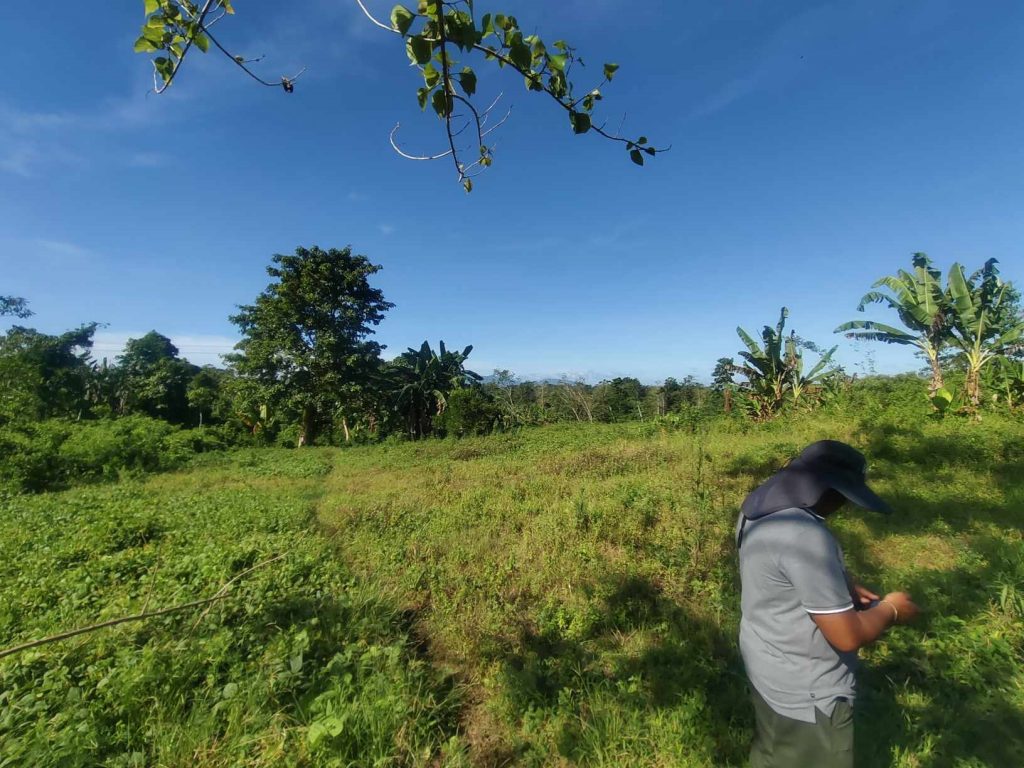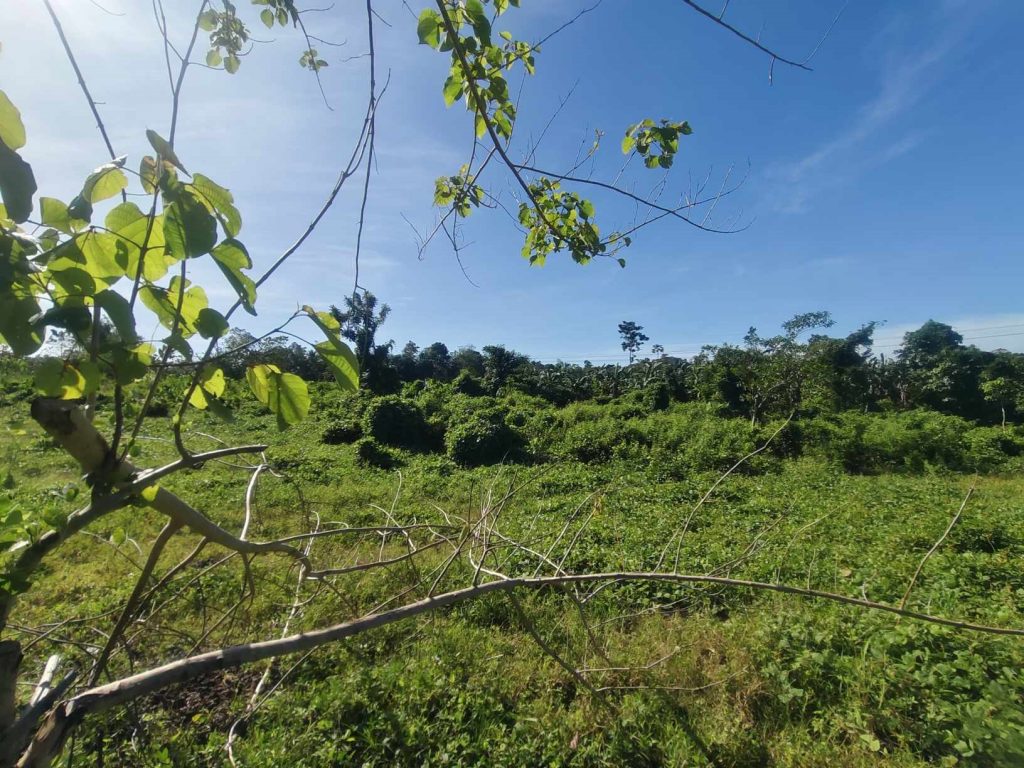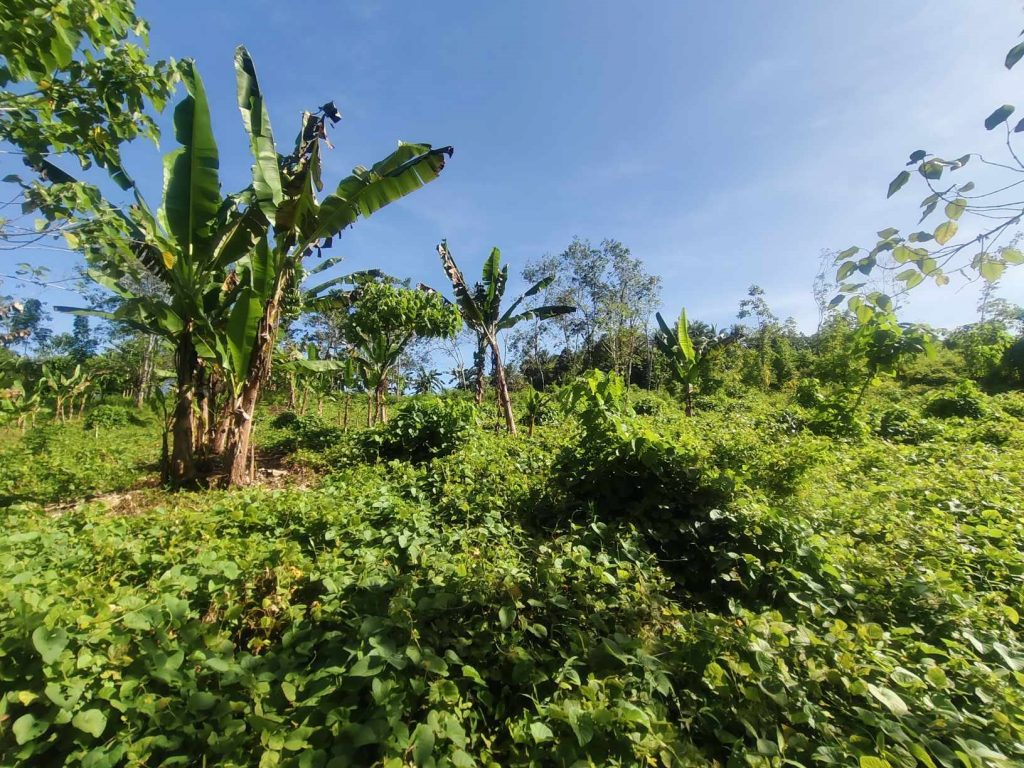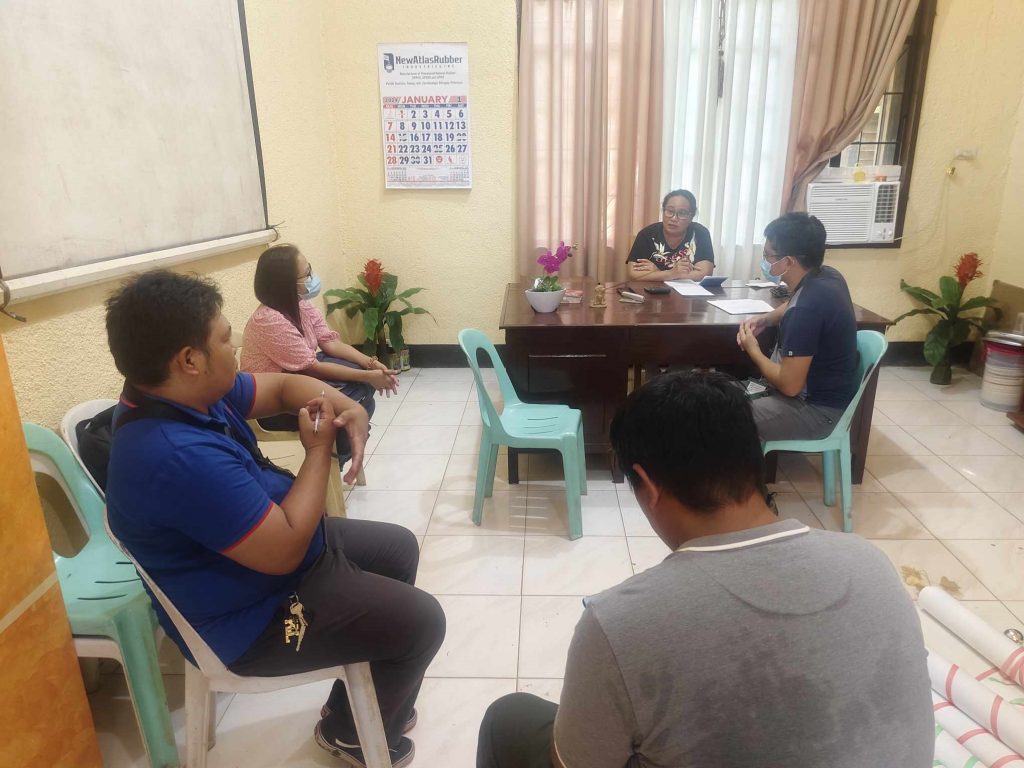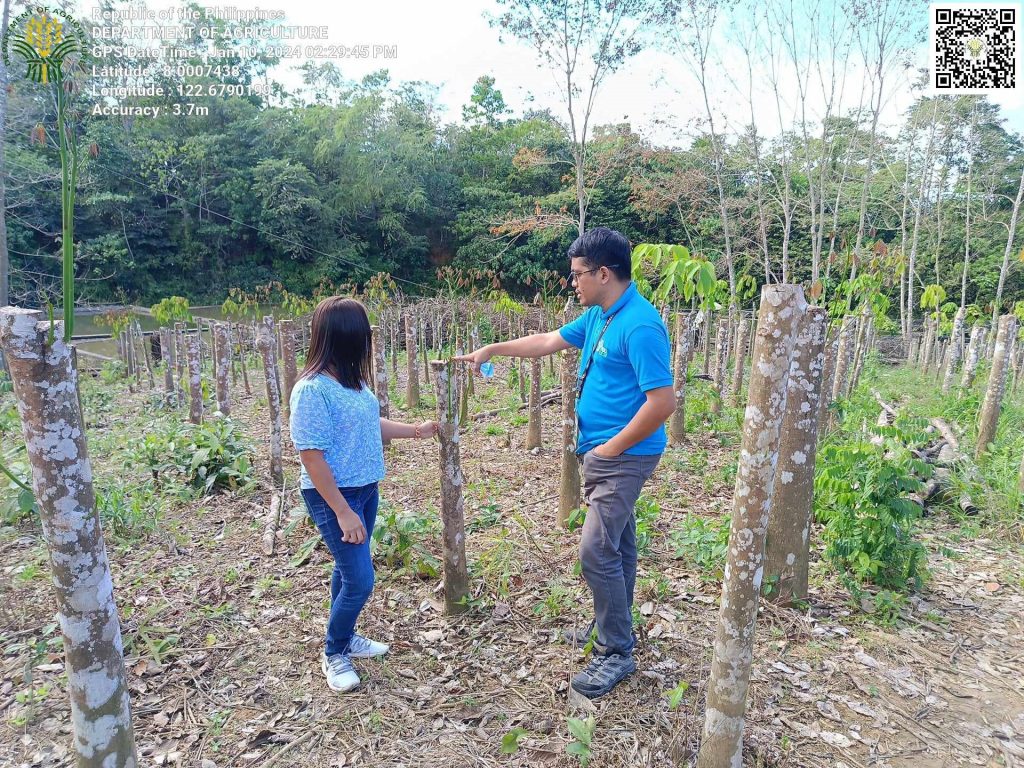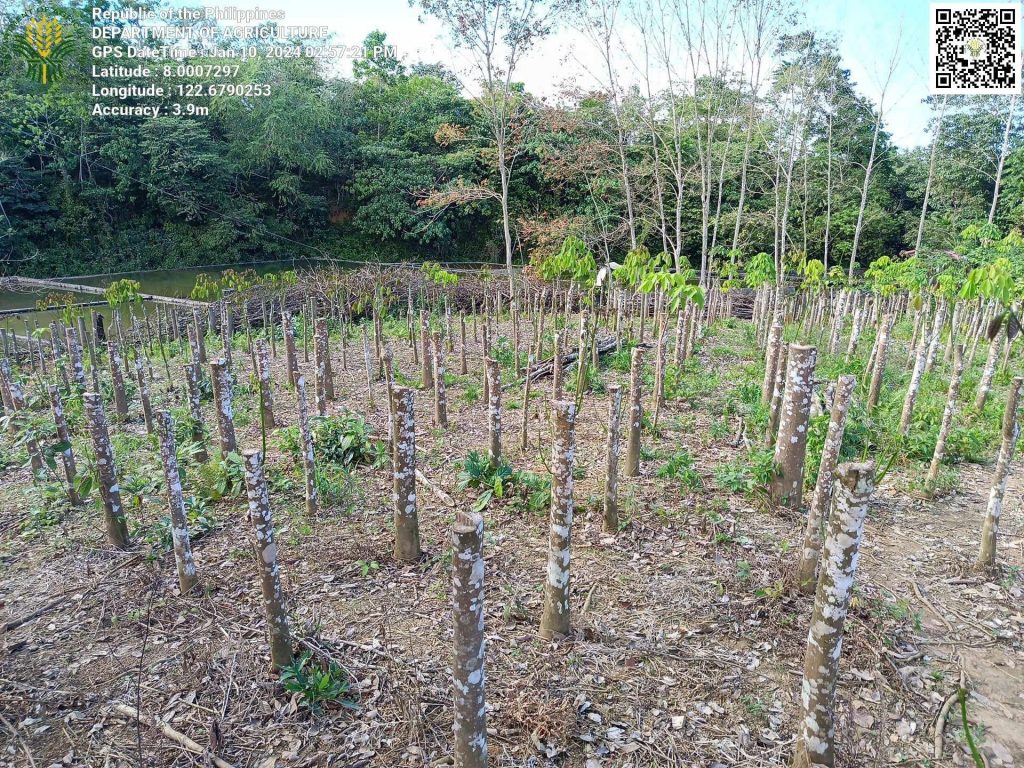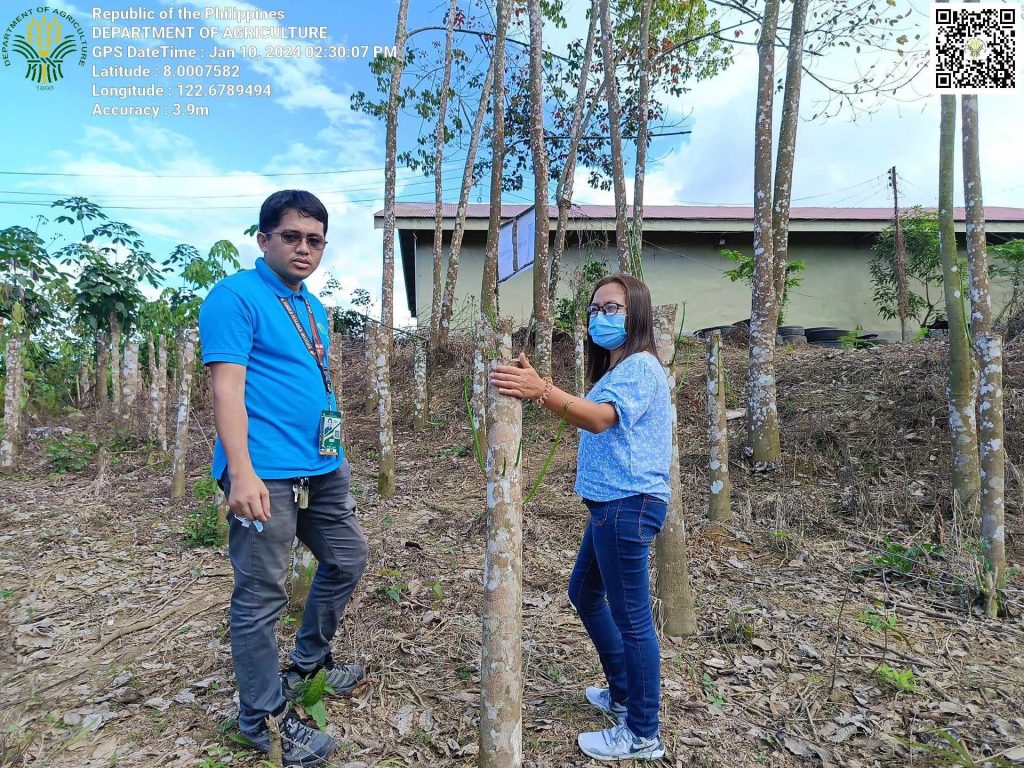In a concerted effort to foster agricultural development and sustainability, the Philippine Rubber Research Institute (PRRI) recently conducted site validations and assessments in Barangay Tambanan, Naga, Zamboanga Sibugay, and Brgy. Sto. Nino, Tampilisan Zamboanga del Norte. The focus was on checking the nursery and budwood garden conditions in these areas to enhance rubber cultivation.
In Barangay Tambanan, Naga, Zamboanga Sibugay, the Crop Management Division (CMD) personnel of PRRI undertook a thorough site validation and assessment on January 11, 2024. The primary objective of this operation was to evaluate the feasibility of establishing a rubber nursery. The assessment encompassed considerations for implementing an irrigation system, developing a road network for convenient access, and establishing the rubber nursery.
During the assessment, discussions were held regarding the broader goals and development plans for the area. A courtesy call with the manager of TARBEMCO provided an opportunity to align strategies and ensure collaborative efforts towards sustainable agricultural practices in the region.
Simultaneously, the STANDECO-PRRI Rubber Budwood Garden Nursery in Barangay Tampilisan, Zamboanga del Norte, underwent a site visit and assessment by PRRI staff on January 10, 2024. The primary aim of this visit was to evaluate the current state of the budwood garden. This included assessing the overall condition of the garden and determining the quantity of budwood available, with a specific target of producing 50,000 rubber seedlings.
These site validations and assessments mark a significant step in PRRI’s commitment to advancing rubber cultivation in the region. The meticulous evaluation of both nurseries ensures that they meet the necessary standards for optimal productivity and contribute to the overall sustainability of rubber farming.
The collaborative efforts between PRRI and local stakeholders, exemplified by the courtesy call with TARBEMCO’s manager, signify a shared vision for the agricultural development of these regions. By addressing the need for essential infrastructures like irrigation systems and road networks, PRRI aims to create an environment conducive to robust rubber cultivation, ultimately boosting the economic prospects of the local communities.
As PRRI continues to actively engage in these initiatives, the organization demonstrates its dedication to fostering sustainable agricultural practices and contributing to the prosperity of rural areas in Zamboanga Sibugay and Zamboanga del Norte. Through such strategic assessments and partnerships, PRRI remains at the forefront of driving positive change in the Philippine agricultural landscape.
-𝑰𝒗𝒐𝒏𝒚 𝑮. 𝑻𝒂𝒏𝒕𝒊𝒂𝒅𝒐
